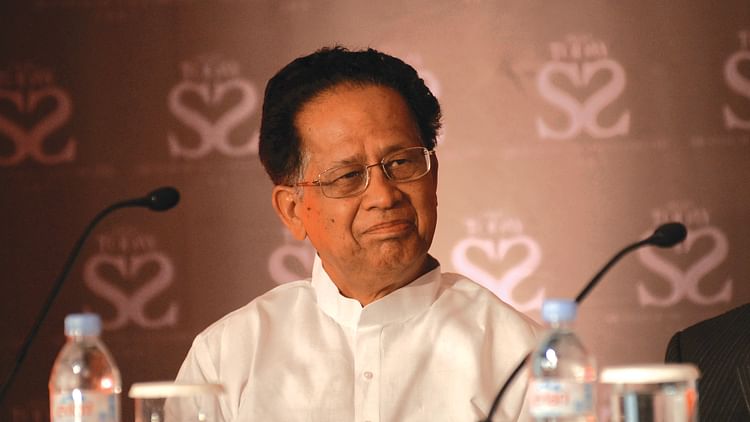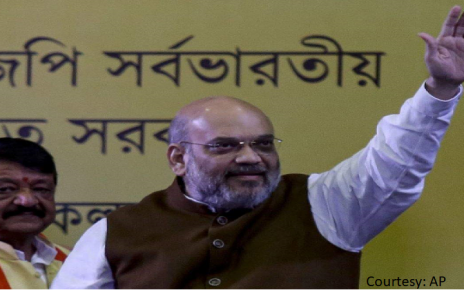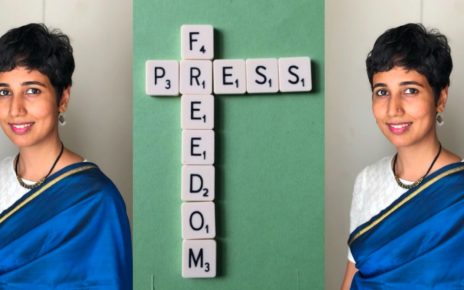National Herald
28 November 2020
By AJ Prabal
His last wish was that his body before cremation be taken to a Naamghar, temple, mosque and a church. A leader with the unique ability to connect with the common man, he will be sorely missed
People remember his infectious laughter and his favourite one-liner in Assamese Baad Diya Hey (Drop it or forget it). In English the two words that he would reassuringly use often were, ‘No problem’.
As the country mourns the death of Tarun Gogoi (1934-2020), the most frequent lament one hears is, “God doesn’t make people like him anymore”. The 86-year old, in hospital for post-Covid complications since November 2, knew the end was near. And his last wish conveyed to his family was that before his last rites, his body should be taken to Namghar, a temple, a mosque and a church first. His ‘final’ attempt to unite the people of Assam. Many involuntarily exclaimed, “If only the current dispensation could learn something from him.”
In his memoir published in 2016, “Turnaround: Leading Assam from the Front”, he wrote, “No problem”. These two words come to mind whenever I feel overwhelmed. They give me the strength to work towards a solution rather than remain stuck with the problem. They urge me to be confident, take positive steps and finally accomplish my goal.”His frequent use of ‘no problem’, he admitted, often amused his own team members, who knew that “problems are our only problem”.He believed that negatives in life had to be approached in a positive manner.
His memoir makes for fascinating reading. He lost the first election he fought in college, he reveals. After he lost the election, he realized that he was arrogant and over-confident and took his victory for granted. Winning, he recalls with good humour, was his birthright, he felt. “If not me, who else, I asked myself. It was my undoing. However, I learned a lesson that will remain with me all my life,” he said, adding from then onwards he never for a moment thought that he was indispensable.
“ I trust people too easily”, he confessed to CLP leader Debabrata Saikia. But he never minced his words and was candid with all. Even while he was a junior minister at the Centre in 1992, he broke convention and wrote a letter to the then Prime Minister Narasimha Rao, protesting the Government’s failure to prevent the demolition of the Babri Masjid.
Gogoi Sir delivered Assam from fear and uncertainty, says Assam Christian Forum spokesperson Allen Brooks. “Under him, life returned to normal in the villages and people began stepping out of their homes at night. The development work in his first term, and holding of the National Games in Guwahati during his second term, helped Assam breathe freely again,” he recalled.
Assamese theatre activist Sitanath Lahkar points to the unprecedented degree of freedom that ‘drama activists’ enjoyed. “During his tenure, freedom of expression was never curbed (unlike) what we are witnessing across India today,” he said. He recalled the popular TV comedy show, Supoti, “where the joke and parodies were often on him. But Gogoi would always break into a grin and enjoyed the show. “A true secular Ahomiya, he never relied on fear or hate,” said Rights activist Suhas Chakma in his tribute. He is acknowledged to have brought peace to the troubled hillsin Bodo areas, Karbi Anglong and Dima Hasao. He also held out an olive branch to the dreaded ULFA and stopped police excesses on families of ULFA militants.
His government’s efforts to set up medical colleges in every district are seen as having played a key role in Assam’s fight against the Covid pandemic. He doubled Assam’s number of medical colleges from three to six.
He had inherited a crown of thorns in 2001 as chief minister. Development, he declared then, could not wait for Peace. His untiring effort, aided partly by the fact that Dr Manmohan Singh was a Rajya Sabha Member from Assam, led to a period of peace and prosperitythat the state had missed out on after the 1970s.



